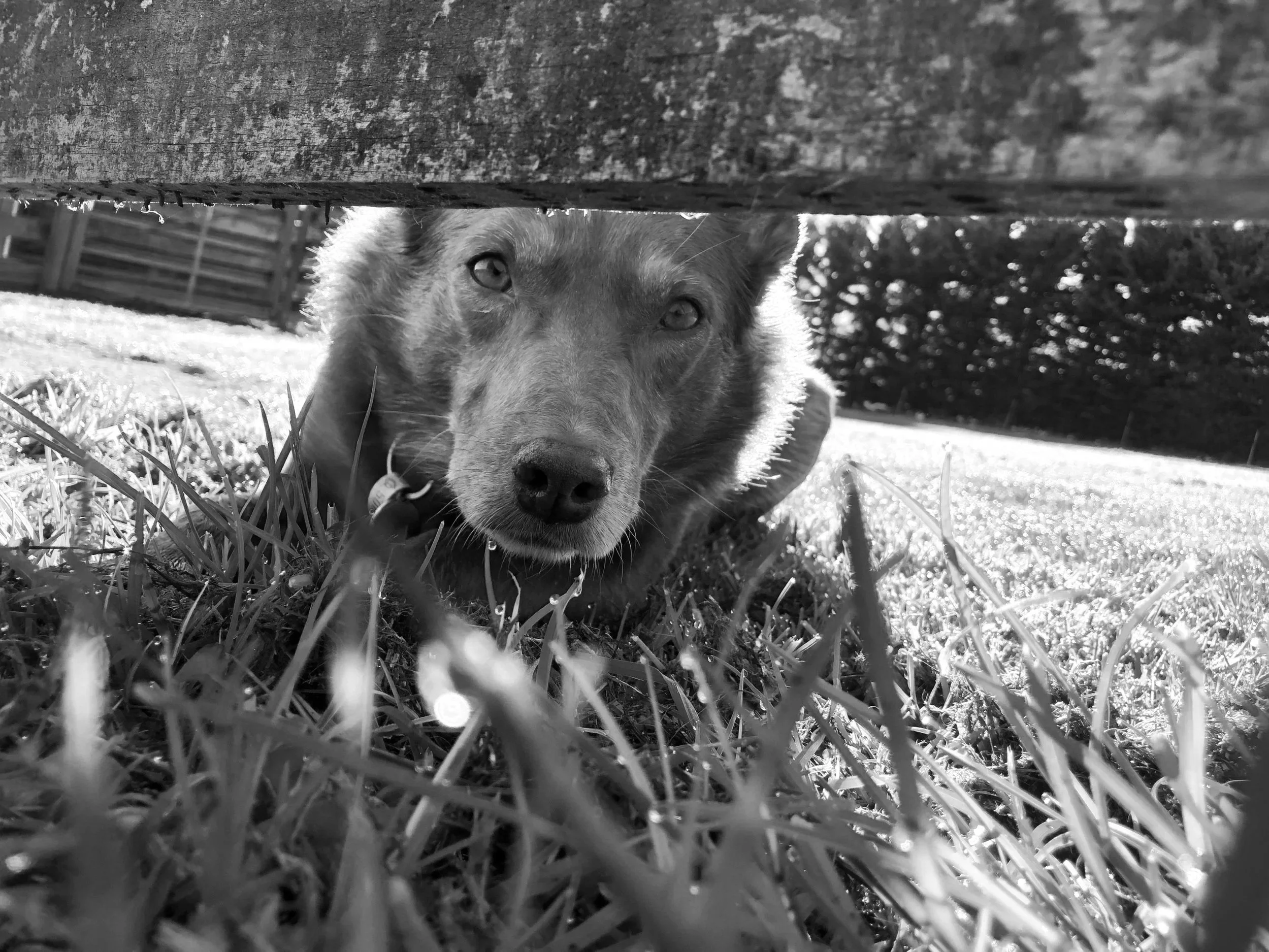
Veterinary Behaviour
If only they could talk.
Behaviour problems are complex for anyone. But in veterinary behaviour, our pet patients can’t explain how they are coping with stressful events. At Hope On A Leash, we will gather information from their human prior to and during the consultation to develop a customised plan. We’ll discuss this with you in detail, and support you with the skills and understanding you need to set your dog up for success.
How it works
-
1. Pre-consultation questionnaire
Before we meet, we’ll send you a questionnaire to provide background on your pet, your home, their health, activity, habits and of course the issues you’re experiencing.
This is an important part of our initial assessment. Often behaviours are being driven by health or environmental factors you may not realise. Likewise things like diet and activity may be playing a role in behaviour. We want to make sure we are looking at everything, to give both you and your pet the best path to success.
-
2. Initial Consultation & First 8 Weeks
The initial consultation phase includes:
- Our detailed review of your completed pre-consultation questionnaire.
A two hour consultation session where we discuss your pet’s needs and your capabilities.
- The development of a personalised management plan.
- follow-up, monitoring and support over the eight weeks post-consultation to implement the plan.Fee: $450
-
3. Revisit Consultation
The revisit consultation occurs eight weeks after the initial consultation. In this session we discuss and assess your pet’s progress and adjust the managment plan as needed.
Fee: $200
-
4. Follow Up Consultations
Follow up veterinary behaviour consultations (1 hour) may be required every 3, 6 or 12 months depending on your pet’s progress and any issues that arise.
Fee: $200
How is veterinary behaviour different to behaviour consultants and dog training?
A Behaviour Vet (sometimes also referred to as a vet behaviourist) is a fully qualified and experienced veterinarian who has completed additional training in animal psychology and behaviour. So a bit like a human psychologist they can assess, diagnose and treat underlying conditions like generalised anxiety, separation disorders, compulsive behaviours, aggressive behaviour, reactivity etc.
Because they are veterinarians, they also have the medical background to assess whether physical issues such as pain may be underlying or contributing to behavioural issues. They can also prescribe any relevant medications to address physical and/or behavioural issues.
There are also behaviourists without veterinary qualifications that can guide but not diagnose any conditions. They are often referred to as Behaviour Consultants who have an understanding of behaviour and can guide you with management plans but cannot support with any medical issues that may be the underlying cause of the behaviour you are seeing in your pet.
Dog trainers also do not have a medical background. They are skilled at teaching procedures and techniques for dogs to respond to human cues. That can be for obedience, tricks, dog sports or any range of activities. If there are no underlying issues requiring a medical approach to your dog’s behaviour issues, or once any underlying medical factors are under control, your Behaviour Vet may suggest you transition to working with a trainer.
In addition to being a Behaviour Vet, Dr Louise is also a qualified dog trainer. This allows her to bring these additional skills into her behavioural approach, but she does not take on training-only clients (except for UnChase programs).
